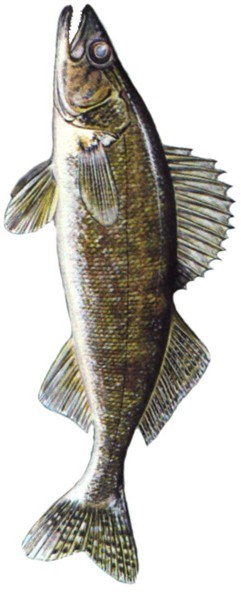NEWS RELEASE
SAULT STE. MARIE TRIBE OF CHIPPEWA INDIANS
************************* Sault Tribe files charges in Little Bay de Noc fishing case
SAULT STE. MARIE, MI - The Sault Ste. Marie Tribe of Chippewa Indians today announced citations against three tribal members accused of violating tribal commercial fishing regulations.
The citations stem from an investigation by the state Department of Natural Resources and Environment (DNRE), which alleged that five Sault Tribe members and one non-native were illegally catching and selling walleye caught in Little Bay de Noc in early 2009.
“The Sault Tribe and its members have tremendous respect for our shared natural resources, especially for our abundant freshwater lakes and rivers,” said Sault Tribe Chairman Joe McCoy. “The tribe will continue to work to protect our shared natural resources for tribal and non-tribal members alike. We will prosecute abuses to the fullest extent of the law.”
Three tribal members accused of illegally fishing are being cited with about 100 civil infractions.
The three are accused of illegally setting nets in Little Bay de Noc to catch walleye, taking thousands of pounds of walleye out of the lake and selling them for profit through a tribal commercial fishing operation consisting of two tribal members and state-licensed wholesaler.
The two tribal commercial fishermen remain under investigation and have not yet been cited.
The DNRE conducted a yearlong investigation before citing the suspects in March 2009.
In accordance with the 2000 Consent Decree, a legal agreement between the state, the federal government and five Michigan tribes, the tribal members were turned over to the tribe for prosecution.
The 2000 Consent Decree recognizes and affirms the tribe’s rights under the Treaty of 1836 to fish in the ceded waters of the three upper Great Lakes.
Tribes covered by the agreement have the authority and responsibility to prosecute members who fish illegally within the treaty areas.
Special Prosecutor Monica Lubiarz-Quigley said it took time for the tribe to pursue the case because of the complexities of jurisdiction - working within the laws of the Sault Tribe, the federal government and the State of Michigan.
“We hope to bring this case to swift resolution now that we have resolved all the technical legal issues associated with three separate sovereign governments,” Lubiarz-Quigley said.
Because of the complexities of jurisdiction, the tribe is unable to pursue the wholesaler.
“The tribe has for years identified prosecuting fish wholesalers as the key to breaking up these illegal fish-peddling rings,” said Chairman McCoy. “We hope that in the future state or local prosecutors will be able to pursue fish wholesalers in cases such as we have here."
*************************
